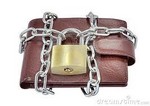
That’s the view of both the Federation of Small Businesses (FSB) and the Food and Drink Federation (FDF), which say food manufacturers are continuing to be stifled by the refusal of banks to lend.
They were responding to research by the Yorkshire Bank, which said small businesses turned over £1.500bn each year, with £1,000bn of it staying in their local vicinity.
The survey found that more than half – 57% – used suppliers all or mostly from within a 10-mile radius of their business , with a further 30 per cent looking no more than 25 miles away.
This was particularly true for small- and medium-sized food businesses, many of which use local suppliers for their raw materials.
However, these levels could markedly increase if banks stepped up lending to allow small food and drink firms to expand, said a FSB spokeswoman.
Refused
“Our research shows that 40% of small business that applied for a bank loan in the first two quarters of this year were refused,” she said.
“One of our members, a small brewing company, had a funding pledge from the Department for Environment Food and Rural Affairs [DEFRA] so it could expand, providing it got match-funding from elsewhere. Despite government support, it couldn’t get bank finance and had to go down other routes to get the money.”
FDF director of communications Terry Jones said it was a similar story across the country.
“We are hearing anecdotally of viable small companies having to turn away lucrative orders due to lack of funds to fulfil them and this in turn limits their potential to grow and generate jobs,” he said.
“In addition, the current tax arrangements make it hard for small companies to attract talented individuals to drive their business forward.”
Vince Cable
The FSB added there could be light at the end of the tunnel in the shape of a state-backed small business bank unveiled by business secretary Vince Cable last week.
The bank will offer credit through smaller outlets such as Handelsbanken, the Co-op and the Aldermore in a bid to loosen the grip on the market the main five high street lenders have when it comes to financing businesses.
But with the precise details and scope of venture remaining sketchy, the FSB spokeswoman urged food and drink firms which had been knocked back by the banks not to give up.
“We would urge them to go the independent bank adjudicator,” she said.“We know that 40% of businesses which have their funding requests rejected later have the decision overturned.”





